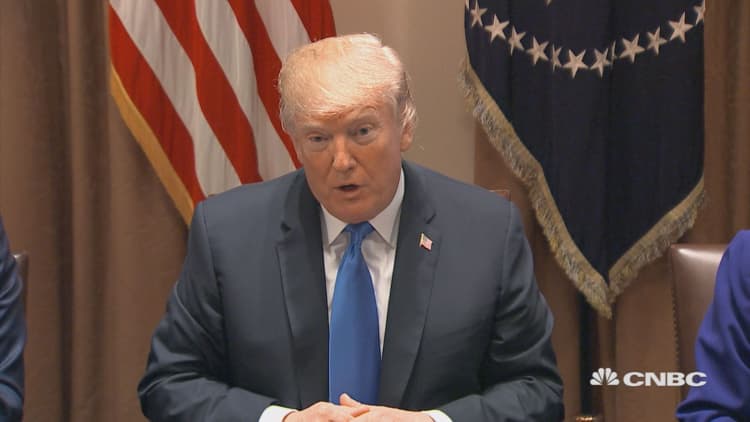
President Donald Trump on Wednesday called for seizing guns "early" from potentially dangerous people without having to first obtain a court order.
"I like taking the guns early, like in this crazy man's case that just took place in Florida," Trump said at a White House roundtable discussion with a bipartisan group of lawmakers on school safety and gun policy reform.
"To go to court would have taken a long time," Trump said.
Trump made the suggestion after Vice President Mike Pence suggested that new gun policies should "give families and local law enforcement ... the ability to go to court, obtain an order and then collect not only the firearms but any weapon" from a potentially dangerous individual.
Pence made sure to note that any such proposal should "allow due process." But Trump, interrupting his Cabinet ally, suggested that law enforcement officials should "take the firearms first and then go to court."
Pence was speaking about so-called gun violence restraining orders, a policy that has gained support from some conservatives as a way to act against potential mass shooters without compromising the protections of the Second Amendment.
The exchange between the two leaders of the Executive branch came amid a wide-ranging discussion on how lawmakers should proceed in crafting new gun policies after a gunman wielding an AR-15 semi-automatic rifle killed 17 students and adults at a Florida high school in February.
The meeting included 10 senators and seven U.S. representatives of both major political parties.
This story is developing. Please check back for updates.


